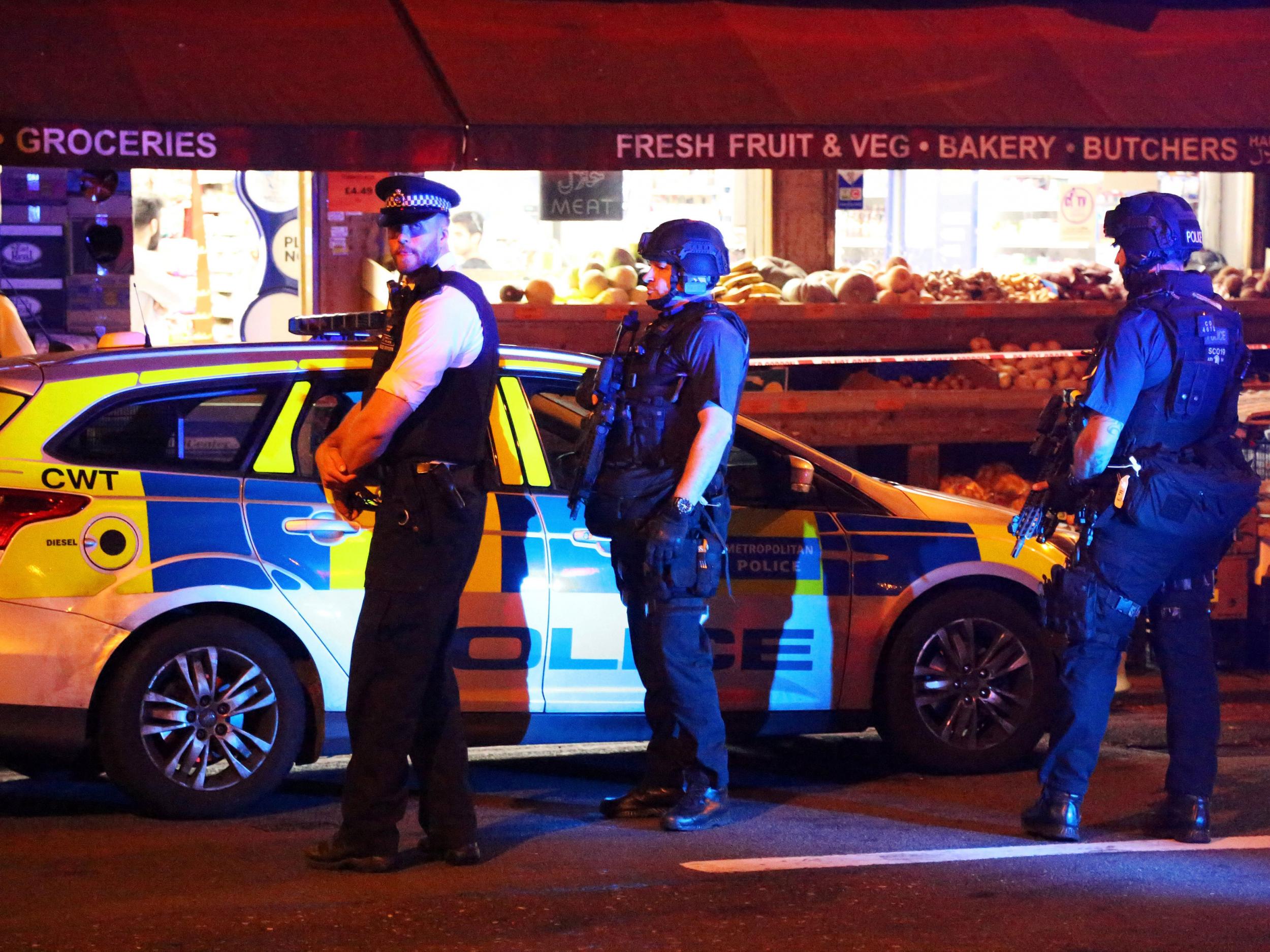Spies brought in to tackle far-right terror threat in UK, home secretary says
Far-right terrorism was previously classed as ‘domestic extremism’ and left to police

Intelligence agencies are being brought in to help tackle the rising far-right terror threat in Britain, the home secretary has announced after a series of attempted attacks.
At least four far-right terror plots have been foiled since March 2017, with one man admitting planning to bomb a mosque earlier this week and another accused of stabbing a man in an anti-Muslim rampage inspired by the Christchurch shooting.
Home Secretary Sajid Javid said the remit of the MI5-led Joint Terrorism Analysis Centre (JTAC) was being extended “to include assessing the threat posed by extreme right-wing terrorism”.
“This change will help to provide a better understanding of the shape and size of this aspect of the threat,” he added in a document. “The marked shift in the nature of extreme right-wing activity, and in the organisation of such groups and their reach, from being small groups mainly focused on promoting anti-immigration views and white supremacy to actual engagement in terrorist activity, has resulted in this aspect of the threat presenting a higher risk to national security than it previously has.”
JTAC is overseen by the director general of MI5 and brings together 16 government departments and agencies, including MI6, GCHQ and counterterror police to analyse threats to the UK.
Mr Javid was responding to recommendations in an annual report by the former independent reviewer of terrorism legislation, Max Hill QC.
Both he and his predecessor, David Anderson QC, called for counterterror powers to be used more evenly against different kinds of extremists.
A review launched by police and MI5 after the London and Manchester attacks came to the same conclusion, proposing changes to “ensure the equivalence of processes in analysing and dealing with all kinds of terrorism, irrespective of the ideology that inspires them”.
It outlined plans for “formal dialogue and structures to enable MI5’s involvement” in far-right cases, and increased intelligence-sharing with police.
The government’s refreshed counterterror strategy was clear that the “threat from Islamist terrorism remains the foremost and most significant”, but warned of a growing threat from the extreme right wing.
While Isis and al-Qaeda have been dealt with by MI5 and MI6 as “international” terrorism, the far-right has previously been classed as “domestic extremism” and left to police.
The historic division came under mounting scrutiny after authorities were caught off-guard by the murder of Jo Cox by a white supremacist in 2016.
The banning of neo-Nazi group National Action later that year was hailed as progress, but a plot by one of its members to behead a Labour MP was not known to police or security services until a fellow extremist raised the alarm.
The Independent understands that a turning point came in the meeting of the government’s Cobra emergency committee that followed the Finsbury Park attack in June 2017.
When Theresa May asked for a security assessment of perpetrator Darren Osborne, who had ploughed a van into Muslim worshippers and killed one man, she was said to be surprised to be told MI5 had no information and he was not their responsibility.

Police had not been monitoring Osborne and his murder trial heard that he had become radicalised online within a matter of weeks. He was cited as an inspiration by the Christchurch mosque shooter.
“Evolving technologies and increasing exploitation of social media for the purpose of spreading terrorist material and radicalising others poses a particularly difficult challenge,” Mr Javid said. “It has become all too clear that the UK was experiencing a shift in the nature of the threat, rather than a spike.”
Police are currently running a record of around 700 live terror investigations, and the head of counterterror policing has warned that Islamists and the far-right are “feeding each other”.
White people have overtaken Asian suspects as the largest single ethnic group arrested on suspicion of terror offences in Britain, and the number of people referred to Prevent over suspected far-right extremism has rocketed by 36 per cent in a year.
Join our commenting forum
Join thought-provoking conversations, follow other Independent readers and see their replies
Comments
Bookmark popover
Removed from bookmarks